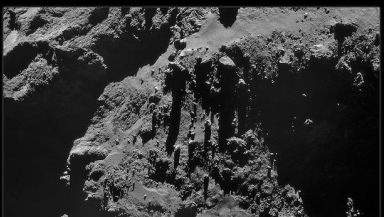
Evangelical Protestants in the US think it's more likely that Jesus will return in the next 40 years than that humans will make significant strides in space exploration.
That's according to research by University of Dayton political science assistant professor Joshua Ambrosius.
Ambrosius used data from the General Social Survey and three Pew surveys to compare attitudes to space exploration among Catholics, evangelicals, mainline Protestants, Jews, adherents of Eastern religions and those with no religion.
He presented his research at a Society for the Scientific Study of Religion conference in Indianapolis earlier this month.
Ambrosius found that evangelicals, who account for a quarter of the US population, are the least knowledgeable, interested and supportive of space exploration, while Jews and members of Eastern traditions were most attentive and supportive.
He also found that while regular church attendance, along with other measures of traditional religious belief like a high view of the authority of the Bible and belief in creationism, exert a negative effect on support for space exploration, clergy support for science exerts a significant positive effect. Evangelicals in particular were twice as likely to recognise the benefits of space exploration if their pastors speak positively about science.
"Evangelicals have been hesitant to recognise the discoveries of modern science — from evolutionary origins to climate change," Ambrosius said. "The data show that this overall attitude extends into space."
He concluded that "Efforts to reach evangelicals must go through the tradition's leadership."
However, these leaders have to contend with oppositional voices like that of Ken Ham, fundamentalist founder of Answers in Genesis and the Creation Museum in Petersburg, Kentucky. Ham has made the argument that search for alien life and habitable planets is pointless because God uniquely created Earth and the life on it, and he has also said the search for alien life is "driven by man's rebellion against God".
Among Catholics, there is more openness to space exploration. Rev Jose Gabriel Funes, director of the Vatican Observatory, has said not believing aliens could exist would be "putting limits on the creative freedom of God".
"Within the broader Christian tradition, there are a variety of perspectives about space and extraterrestrial life," Ambrosius said. "The space community can have success with increased outreach to religious groups with the message that space exploration, for means of discovering life-bearing or sustaining planets or otherwise, does not conflict with their faith and is in their — and the entire human race's — best interest."
The question of how the discovery of life on other planets would affect the worlds religions has recently been addressed by astronomer David Weintraub in his book Religions and Extraterrestrial Life: how will we deal with it? He said in an interview with Scientific American entitled Did Jesus Save the Klingons? that it would be likely to cause particular problems for evangelicals, who tended to believe that human beings were "the sole focus of God's attention".
It would challenge much religious faith, he said: "I think at bottom most people have this idea that we humans are pretty special creatures and that God is paying attention to us. If we find somebody else, then there are lots of somebodies, most likely. And if there are lots of somebodies, that somehow would seem to make us less important."
He concluded: "Suddenly if there are other beings out there, I think it changes completely the way we think about our place in the universe. I think it would be truly profound to know that."















